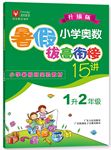题目内容
9.Festivals and celebrations of all kinds (61)have been held (hold) everywhere since ancient times.Most ancient festivals would celebrate the end of cold weather,planting in spring and harvest in autumn.Today's festivals have many origins,some (62)religious(religion),some seasonal,and some for special people or events.Some festivals are held to honour (63)the dead or to satisfy the ancestors,(64)whomight return either to help or to do harm.Festivals can also be held to honour famous people,(65)likeQu Yuan,Christopher Columbus and Mohandas Gandhi.Harvest and Thanksgiving festivals can be very happy events.People are grateful because their food is gathered for the winter(66)andthe agricultural work is over.The most (67)energetic (energy) and important festivals are the (68)ones that look forward to the end of winter and to the (69)coming (come) of spring.Festivals let us enjoy life,be proud(70)of our customs and forget our work for a little while.
分析 本文讲述了不同节日的来历.从古代就有许多种的节日,它们会庆祝冬天的结束,春天的播种,秋天的收获.而今天的节日的起源有宗教方面的,季节方面的,还有一些为了纪念一些特别的人或者事件.最重要的节日是那些盼望冬天的结束,迎接春天来临的节日.
解答 61.have been held.考查谓语动词的时态和语态.根据时间状语 since ancient times可知谓语动词用一般过去时态,又因为谓语动词hold和主语Festivals and celebrations 是被动关系所以用一般过去时态的被动语态have been held.
62.religious.考查派生词.和形容词 seasonal并列,用名词religion的形容词religious,表示"宗教的".
63.the.考查定冠词.定冠词和形容词dead 连用,表示"死去的人".
64.who.考查定语从句的关系词.代指先行词the ancestors(祖先们),做定语从句might return either to help or to do harm.的主语,用who.
65.like.考查介词.like表示"像,比如",表示"像屈原,哥伦布,甘地这样的人".
66.and.考查连词.their food is gathered for the winter和the agricultural work is over 都是主句People are grateful 的原因,所以二者之间是并列关系,因此用and连接.
67.energetic.考查派生词.和形容词important 并列,用energy的形容词energetic,表示"精力充沛的.
68.ones.考查代词.代指festivals,做定语从句that look forward to the end of winter 的先行词用ones.
69.coming.考查考查派生词.在定冠词the 后面用come 的名词coming,表示"春天的到来".
70.of.考查介词.固定短语be proud of 表示"对…骄傲".
点评 考查语法填空.
英语的语态是通过动词形式的变化表现出来的.英语中有两种语态:主动语态和被动语态.
主动语态表示主语是动作的执行者.巧记为:主动、主动、主去动.
例如:Many people speak English.speak的动作是由主语many people来执行的.
被动语态表示主语是动作的承受者,即行为动作的对象.巧记为:被动、被动、主被动.
例如:English is spoken by many people.主语English是动词speak的承受者.
主动态和被动态指的是动词形式,是词法概念;而主动句和被动句则指的是句子结构,从而是句法概念.所谓主动句就是由主动态动词(词组)作谓语动词的句子,而被动句则是由被动态动词(词组)作谓语动词的句子.

 学练快车道快乐假期暑假作业新疆人民出版社系列答案
学练快车道快乐假期暑假作业新疆人民出版社系列答案 浙大优学小学年级衔接导与练浙江大学出版社系列答案
浙大优学小学年级衔接导与练浙江大学出版社系列答案 小学暑假作业东南大学出版社系列答案
小学暑假作业东南大学出版社系列答案 津桥教育暑假拔高衔接广东人民出版社系列答案
津桥教育暑假拔高衔接广东人民出版社系列答案 波波熊暑假作业江西人民出版社系列答案
波波熊暑假作业江西人民出版社系列答案Although the cat doesn't (36)C this,its body is getting ready for action.
If the danger continues,this animal will do one of the two things.It will (37)C itself,or it will run away as fast as it can.
(38)C,when people are excited,angry,scared,or aroused by other emotions,our bodies also go through many (39)B changes.Our hearts beat faster,and our muscles get tense.All of these changes make us more alert(警觉的) and ready to react.We,too,get ready to defend(防卫) ourselves (40)B run.
Human beings,(41)D,have a problem that animals never face.If we give way to our feelings and let them (42)C,we can get into trouble.Have you ever said something in anger,or hit somebody and regretted it later?Have you ever shouted at a teacher,told someone you were lonely,or said you were in love,and then (43)A later you had kept your mouth shut?It isn't always (44)D to express your feelings freely.
Does this mean that it's smarter always to (45)C our feelings?No!If you (46)A feelings of anger,sadness,and bitterness hidden away or bottled up inside,your body stays (47)B.Physical illnesses can develop.It can actually be (48)Bfor your health.
Feelings that you keep all bottled up inside don't just (49)A.It's like you bought some bananas and stuck them in a cupboard.You might not be able to see them,but (50)C you'd smell them.And if you opened the cupboard,you'd(51)Dlittle fruit flies hovering (盘旋) all over them.They'd be rotten.
You can try to treat emotions (52)A they were bananas in the cupboard.You can (53)A they don't exist,but they'll still be (54)B.And at last you'll have to (55)B them.Just like those bananas.
| 36.A.mind | B.admit | C.realize | D.remember |
| 37.A.save | B.help | C.defend | D.hide |
| 38.A.Truly | B.Frequently | C.Similarly | D.Differently |
| 39.A.chemical | B.physical | C.health | D.ill |
| 40.A.and | B.or | C.but | D.yet |
| 41.A.therefore | B.but | C.besides | D.however |
| 42.A.take off | B.take on | C.take over | D.take up |
| 43.A.wished | B.hoped | C.blamed | D.shared |
| 44.A.useful | B.right | C.easy | D.wise |
| 45.A.handle | B.hurt | C.hide | D.prevent |
| 46.A.keep | B.find | C.control | D.let |
| 47.A.relaxed | B.tense | C.same | D.different |
| 48.A.good | B.harmful | C.helpful | D.useful |
| 49.A.go away | B.go on | C.go up | D.go out |
| 50.A.long before | B.as usual | C.before long | D.right away |
| 51.A.meet | B.observe | C.catch | D.see |
| 52.A.as if | B.just as | C.just after | D.even though |
| 53.A.pretend | B.expect | C.decide | D.think |
| 54.A.in | B.around | C.over | D.beyond |
| 55.A.eat up | B.deal with | C.throw away | D.send out |
| A. | finding | B. | found | C. | to find | D. | being found |